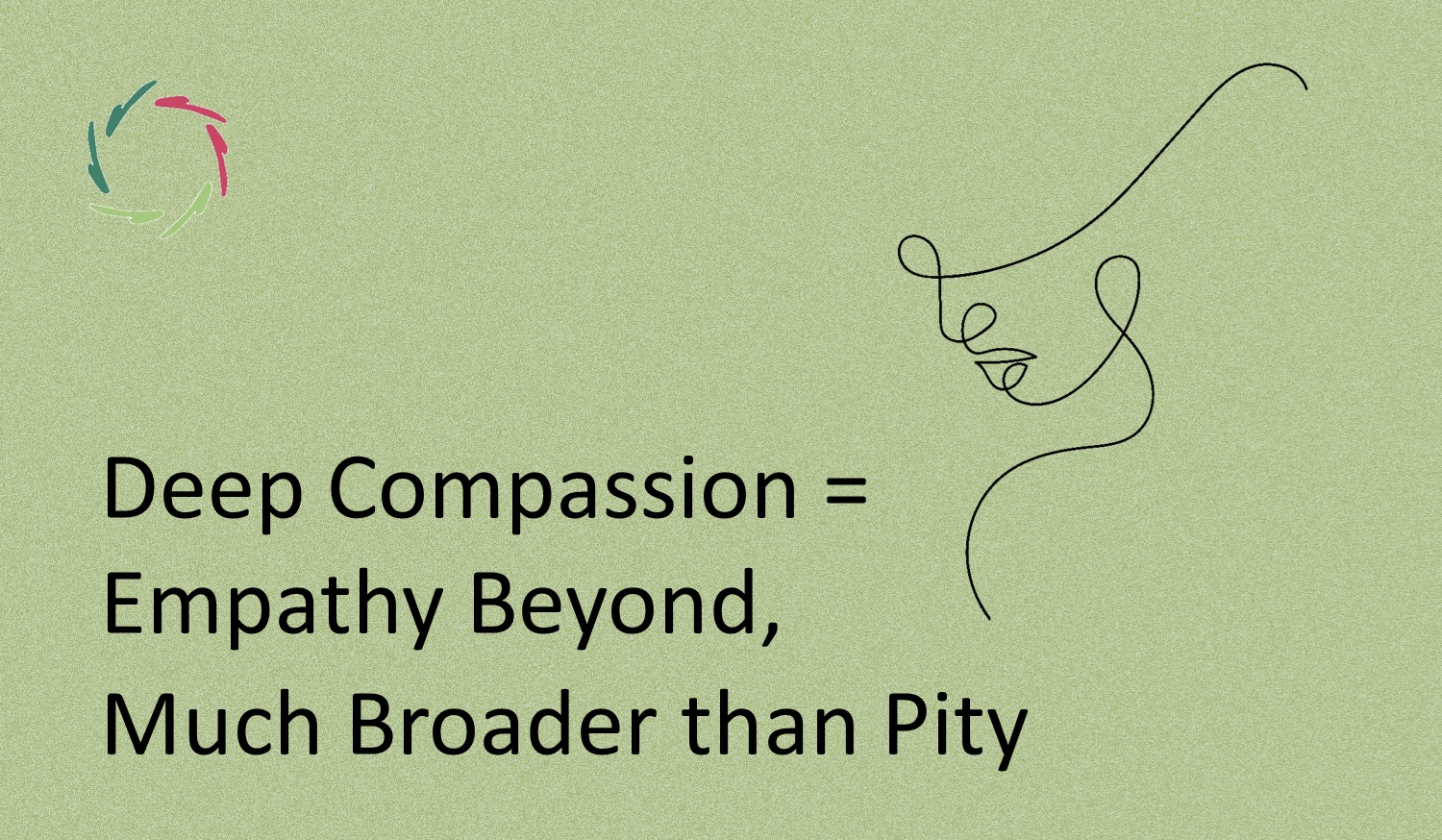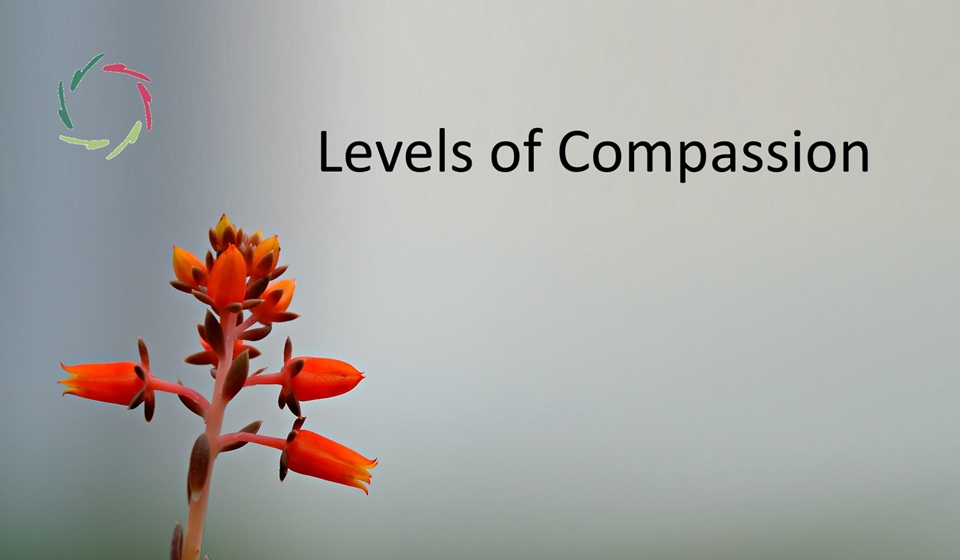Deep Compassion = Empathy Beyond, Much Broader than Pity

When hearing the word compassion, people often think of pity — a reaction to someone’s suffering rooted in feeling sorry for them. Deep Compassion goes far beyond pity and far beyond purely conceptual mental processing.
It represents a deeper connection, a much broader understanding that touches the whole person — mind, body, and non-conscious mental processing. (Deep) Compassion is a universal concept, not confined to religion.
Compassion is not pity
In the West, compassion is frequently interpreted as a feeling of sorrow for someone’s misfortune. While this reaction may stem from good intentions, it remains at the surface.
Deep Compassion, in contrast, dives into a person’s totality. It recognizes the complexity of human experience and engages with the deeper layers of the mind, where real transformation happens.
Deep Compassion: a total-person approach
Deep Compassion sees the person as a whole — body, mind, and what could be called the ‘soul,’ or more scientifically, the deeper mind. See Compassion = Total-Person Empathy.
This deeper mind consists of vast mental-neuronal patterns, most of which are outside our conscious awareness. In this context, Deep Compassion involves empathy that goes beyond what the conscious mind sees or understands, tapping into the entire person and recognizing the root of experiences. This is what enables real growth and healing, unlike pity, which often keeps interactions at a shallow level.
Power of Deep Compassion
Just as Artificial Neural Networks (ANNs) rely on hidden layers to function, so do human beings rely on deeper, often hidden aspects of their mind. Without these layers, an ANN is useless; similarly, without engaging the deeper mind, our understanding of compassion remains superficial.
When we engage with someone’s deeper mind, we reach a level where change and healing can occur. This is where Deep Compassion holds its true power. By recognizing and working with these layers, we foster lasting personal growth, not just temporary comfort.
Beyond pity, beyond altruism
Pity often comes from a place of emotional distance. Deep Compassion is deeply engaged and holistic, a way of seeing and interacting with the world that encourages growth and connection. Deep Compassion also moves beyond mere altruism, which often focuses on external acts of kindness without connecting to the deeper causes of suffering.
Altruism can sometimes be about fulfilling an external expectation or duty. Deep Compassion, however, is about truly understanding and respecting the inner dynamics of another person’s life. It’s not about doing good for the sake of it; it’s about aligning with the inner forces that drive personal and collective growth.
Compassion in the face of technological change
In an era of rapid technological advancement, especially with the rise of super-A.I., Deep Compassion becomes even more essential. A.I. will undoubtedly influence every aspect of human life. The only way to ensure that these systems remain human-friendly is by embedding them with Deep Compassion (and indeed not pity!), aligning them with the core values of well-being and personal growth.
Without this deeper understanding, there is a real danger that A.I. could lead to dehumanization. Deep Compassion offers a path forward that fosters cooperation between humans and AI, ensuring that technology serves our deeper needs rather than undermining them.
The need for Deep Compassion
In a world that is becoming increasingly disconnected, Deep Compassion is not just a nice-to-have but a necessity. It helps us reconnect with ourselves and others on the deepest level. It reminds us that real compassion is about fostering true growth and healing.
The future of human connection, both in personal relationships and in the face of advancing A.I., depends on this. By recognizing the broader scope and deeper meaning, we can ensure that this remains at the heart of what it means to be human.


